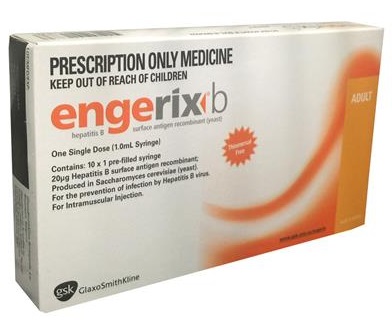Hepatitis BWhat is Hepatitis B? Hepatitis B virus is one of several viruses that can infect the liver. Although many people with hepatitis B have no symptoms, the virus can live in the liver tissue and cause severe scarring and liver damage and this can have long-lasting effects on a person's health. Most adults who get hepatitis B recover or 'clear' the infection without specific treatment. They are no longer infectious, and have lifelong immunity. However, about five to 10 people in every 100 infected do not clear the virus, and remain infectious for many years. They have chronic (long-term) hepatitis B infection. Children infected from their mother at birth are more likely to develop chronic hepatitis B. Chronic hepatitis B infection slowly damages the liver, so people with this condition may eventually suffer liver failure or cancer of the liver. About 2% of people infected with hepatitis B as adults, and 25% of people infected as babies, develop advanced liver disease. What are the symptoms? Most people have no symptoms when they are first infected with hepatitis B. If there are symptoms, they usually develop within one to three months of infection and can include:
People with chronic hepatitis B infection may appear well while others will develop symptoms such as fatigue, loss of appetite, nausea/vomiting, abdominal pain and joint pains. How is it spread? The hepatitis B virus is spread by body fluids (blood, semen, saliva or vaginal fluid) of an infected person when the virus enters the blood stream of another person. This can occur in different ways:
Those who have not had hepatitis B and who have not been vaccinated against it are at risk of catching the disease. Exposure to hepatitis B may be common in some high risk groups including:
The best way to protect yourself from hepatitis B is to get vaccinated.  The standard vaccination schedule consists of 3 injections over 6 months and is safe and effective. Hepatitis B is part of the infant vaccination program. Children in Year 7 at high school who have not been vaccinated before are offered 2 doses of the vaccine (available until the end of 2013). Hepatitis B vaccination is available from local doctors. It is also available free at sexual health clinics and some other venues for people at higher risk of infection. Vaccination may not protect everyone, so avoid hepatitis B and other infections by:
Hepatitis B testing can be part of a sexual health or general health check up. Your doctor can do a blood test to see if you're immune, and if you're not, can vaccinate you for protection against infection. People who are not immune and have recent exposure to hepatitis B can be protected from infection with hepatitis B immunoglobulin or vaccine. This needs to be given as soon as possible after a known exposure (e.g. after a needlestick injury, body fluid splash to the mucous membranes, or sexual exposure). If this has happened, it's important to seek immediate medical advice. How is it diagnosed? Hepatitis B is detected by a blood test. This can show if a person has current infection or has had hepatitis B in the past but is no longer infectious. It can also show whether someone is immune following vaccination. How is it treated? There is no specific treatment for acute hepatitis B. If a person still has hepatitis B after six months, the infection is called chronic hepatitis B. Treatments for hepatitis B are improving. Speak to your local doctor about whether treatment of your infection is recommended. To reduce the risk of further liver damage, people with hepatitis B should:
If you have hepatitis B it is important to tell people who may have been exposed, so that they can get tested. If you are infectious and you have had unprotected sex or shared needles with someone who is not immune, they need to see a doctor immediately in case they need immunoglobulin. Family members and housemates may also be at risk of infection if they are not immune, and should be vaccinated to help stop the spread of the virus. Your doctor or sexual health clinic can help you identify who may be at risk and help contact them. If you wish, your doctor can make the contact for you, while also keeping your identity confidential. If you are a health care worker you should ensure that you do not pass hepatitis B on to patients. Speak to your doctor, professional body or your employer. Further information is available in the policy 'HIV, Hepatitis B or Hepatitis C - Health Care Workers Infected' (PD2005_162) What is the public health response? Doctors, hospitals and laboratories, schools and childcare centres must notify new cases of Hepatitis B to the local public health unit. This information is kept confidential and is used to better understand who is at risk of the disease and to help control further spread. Further information Hepatitis Helpline (02) 9332 1599 or 1800 803 990 (outside Sydney) NSW Sexual Health Infoline 1800 451 624 For further information please call your local public health unit on 1300 066 055. |
|
Covid-19 Notices
Flu Shot Emergency Numbers After Hours 13 74 25 Contact Hours |
Doctors
Appointments Fees About Map Links |
Immunisation
Feedback Local Pharmacies Resources Home |

| 
|

| 
| 
| 
| 
|
|---|---|---|---|---|

| 
| 
| 
| 
|



